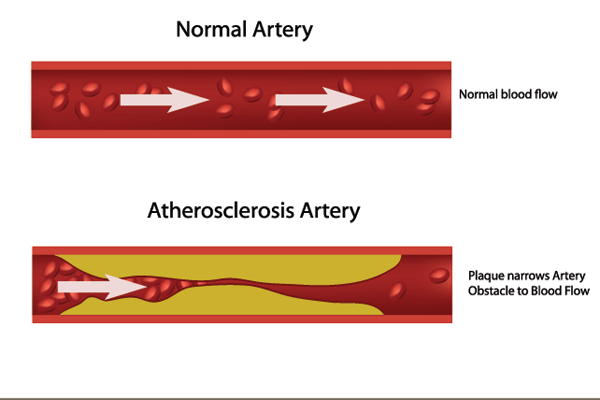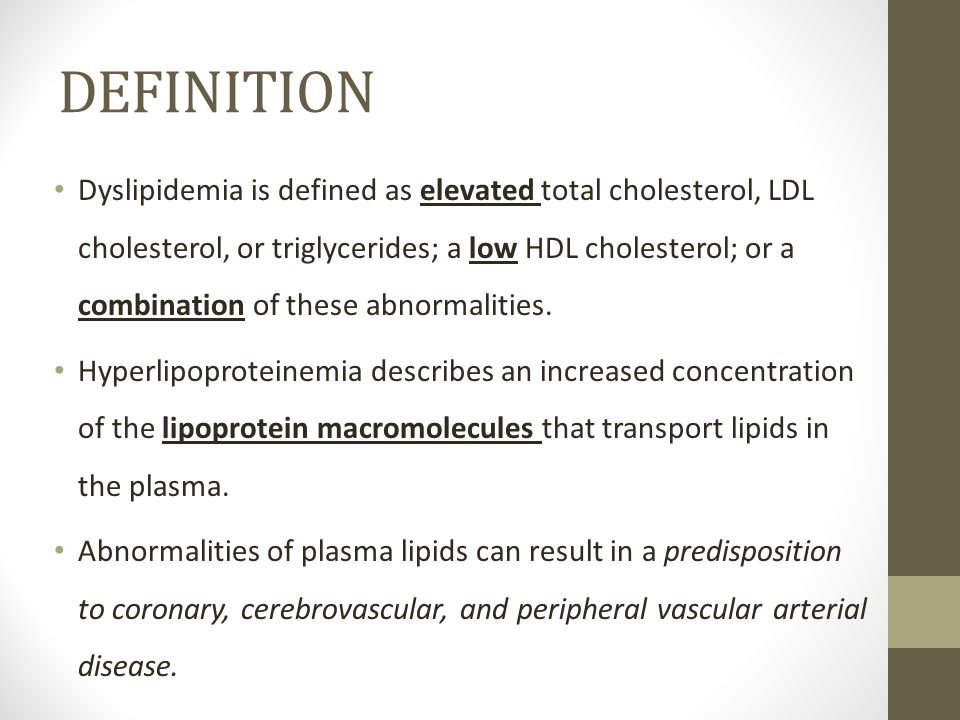
You may be wondering what hyperlipidemia is, but you don’t have to worry about having the condition if you don’t have any symptoms. You can prevent hyperlipidemia by living a healthy lifestyle. You can control your cholesterol level by not smoking or drinking too much alcohol. It is also important to maintain a healthy body weight. Your diet should be high in fruits and vegetables, and low in saturated and trans fats. You should also limit the amount of processed foods and eat plenty of fiber. Avoid foods high in carbohydrates, such as white bread, potato chips, and pasta. Instead, choose foods that contain monounsaturated fats.
There are a number of risk factors for hyperlipidemia. Being overweight or obese increases the risk, as does not getting enough exercise. You should also avoid a diet high in saturated fat and simple carbohydrates. You should include more fruits, vegetables, and fiber in your diet. While it is recommended that you exercise regularly, you should be aware of your body’s response to these changes. It is best to see a doctor to get the appropriate treatment if you are experiencing symptoms of hyperlipidemia.
People with hyperlipidemia often experience symptoms of elevated cholesterol levels. They may also suffer from high blood pressure. While the exact cause is unknown, there are several factors that increase the risk of hyperlipidemia. The most common risk factor for this disease is genetic makeup. Individuals with hyperlipidemia have relatives who also have high cholesterol levels. This condition is called familial combined hyperlipidemia. It may be exacerbated by chronic conditions such as diabetes and obesity.
There are ways to reduce your risk of hyperlipidemia. By adjusting your diet, losing weight, and exercising more, you can reduce your risk of developing it. Moreover, you can consult with a doctor if you have a family history of the disease. It is also important to note that the treatment for hyperlipidemia depends on the underlying cause of your condition. Taking additional medications may be necessary if you have a genetic predisposition to it.
Generally, people with hyperlipidemia should make lifestyle changes to reduce their risk of the condition. You should follow a healthy diet and avoid fatty foods. It is also important to stop smoking and reduce your saturated fat intake. In addition to changing your diet, your doctor can prescribe a medication for you. You can also consult a nutritionist if you have any concerns. You can seek advice from a specialist regarding your diet and cholesterol levels.

When you are diagnosed with hyperlipidemia, it’s essential to understand how to control it and what your symptoms are. You should also follow your doctor’s recommendations and learn about the symptoms and the risks of the disease. It is important to follow your physician’s recommendations for your condition. You should also follow a diet low in saturated fat and fiber. Your doctor should also educate you about the side effects of medications that you are prescribed.
Although the symptoms of hyperlipidemia are often mild, there are a number of treatments available for hyperlipidemia. You can lose weight and exercise regularly to prevent the occurrence of the condition. If your hyperlipidemia is caused by genetics, you may need additional medications. These medications will help you control the disease. If you are at risk for cardiovascular disease, you should consult a doctor for more information. You should also talk to your family doctor if you have any questions.
In addition to changing your diet, you can also adopt a healthy lifestyle that includes increasing your fiber intake and decreasing your saturated fat intake. These changes will help you avoid high cholesterol levels. A good treatment for hyperlipidemia should include lifestyle changes that will improve your health. You should also exercise regularly to maintain a healthy body weight and maintain a normal body mass index. For people who already have the disease, these changes will help them cope.
The two most common risk factors for hyperlipidemia are diet and age. You can lower your cholesterol levels by improving your diet. In addition, weight loss and adequate exercise are also important for people with hyperlipidemia. Your doctor may also prescribe additional medications if you have a genetic predisposition to hyperlipidemia. By improving your lifestyle and lowering your cholesterol levels, you can lower your risk of heart disease and stroke. You can also consult a dietitian and visit the health website https://kopertis10.or.id/ if you are overweight or have a history of the condition.